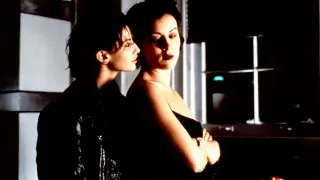June 14, 2015
A Place Called Winter
Kilian Melloy READ TIME: 3 MIN.
At least since the first meaning of "gay" has been "homosexual," same-sexuals of all genders have flocked to cities for the opportunity to "be themselves." It wasn't always so, and Patrick Gale's new novel "A Place Called Winter" (Tinder Press) evokes an earlier era, when sexual outliers took to the wide open spaces to find freedom from societal constraints.
One of Britain's most prolific gay writers, Gale reaches across the Atlantic to re-imagine the story of his own great-grandfather, who took to the wilds of territorial Canada to escape a repressive if putatively more civilized Britain.
There seems to be no evidence that the real-life Harry Crane was gay, but the protagonist of Gale's novel is, albeit secretly, the secrecy commonplace in suffocating Edwardian England. The fictional Harry is a loving husband and father whose sexual emotional needs are met in a clandestine affair with a voice coach, Hector Browning. (Harry has a stammer that, like Billy Budd's, is brought on by situational anxiety.)
During their tryst, Gale writes, "Terror of discovery would steal up on [Harry] now in idle moments, usually amidst family. In a crowded, overheated scene, it was like an icy draught only he could detect. And yet, paradoxically, this terror seemed to form an intrinsic part of the excitement his meetings with Browning brought him." Found out and disgraced, Harry dutifully submits to his family's command that he not sully their reputation by going abroad.
That sojourn, the book's central episode, is as timeless and vast as the plains of Saskatchewan in which it is set. It is there that Harry, like other misfits of his day, moved to homestead and make a new, mostly solitary life. Reaching his destination by a train route that designates its stops alphabetically, Harry is deposited in the aptly named Winter, where he begins cultivation of the 160 acres that will become his if he succeeds. There his new life unfolds with the plainness of prairie sage.
Gale's prose is straightforward, challenging the reader only with the quasi-palindromic laying out of his plot. The book begins and roughly ends in the misleadingly named Bethel, a mental institution of mysterious purpose where the post-Winter, broken Harry receives creepy hydro- and hypnotherapy to treat whatever he can be induced to name as his problem. It doesn't take a divining rod to know what that is.
The author's strength is characterization, achieved through effective dialogue. Even minor characters hold their ground, and the story's big four step off the page. What Harry lacks in complexity he makes up in warmth and sympathetic interactions with others, who sculpt him out of a block of ice like individual jets of water. Their names can be bothersome. The "hurricane" hiding in Harry Crane is a leitmotif in the novel, and most of the other characters have names Gale almost forces you to remember.
Brother and sister Petra and Paul Slaymaker, his homesteading neighbors on the plain, are also running, from the consequences of Paul's impetuousness. "He gets these enthusiasms for people," Petra explains, "and then he goes too far." Harry becomes so enmeshed with them that he marries the one and romances the other. Both are sharply drawn. You want Harry to become more involved with them. On the dark side is the land-broker Troels Munck. A self-appointed official fronting a black-hearted serial rapist and murderer, sexually ambivalent but omnivorous, he keeps reappearing menacingly, as if from behind the stage curtain.
The idyll at the center of the plot is the unlikely love that develops between Harry and Paul, consummated at first in an al fresco swim worthy of D.H. Lawrence. "The thing growing between them," Gale writes, "which, with the superstition of new happiness, Harry hesitated to name, went undiscussed and barely acknowledged. At the end of a day's labor, one or other of them would suggest a swim, and swim they did, the pleasure of it boosted by its teasing delay of what followed."
An urban gay reader of today might dismiss that as too facile a plot line, whereas a widely traveled one could attest to the near predictability of such loves in unlikely places. For this reader, the problems come with Gale's heated plot resolution. In the final chapters there's a "spirit quest" led by a gender-ambiguous Native North American, an almost-great escape, and, in the anticlimactic final pages, a dufus-ex-machina ending.
"A Place Called Winter"
Hardcover - $15.50
Paperback - $13
http://tinderpress.co.uk/title/a-place-called-winter-3






